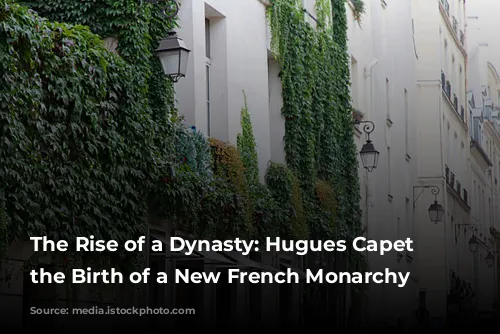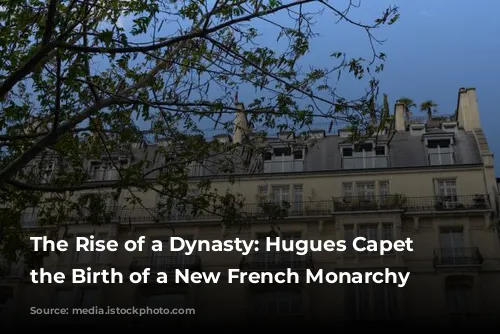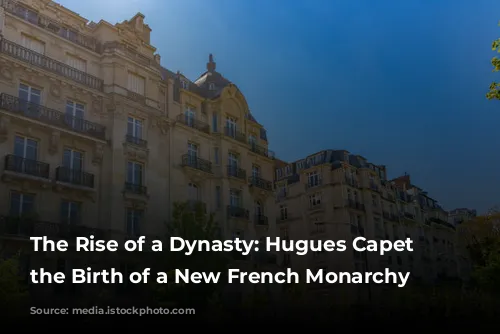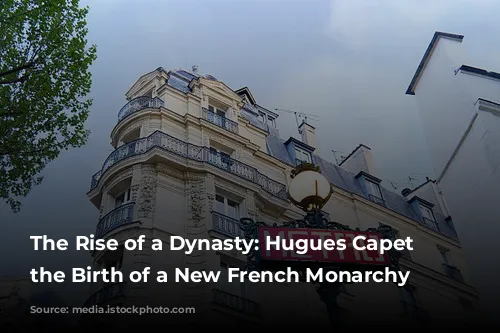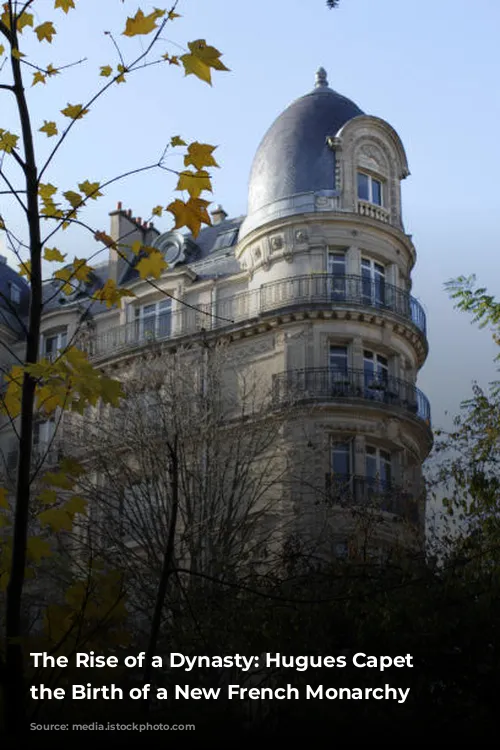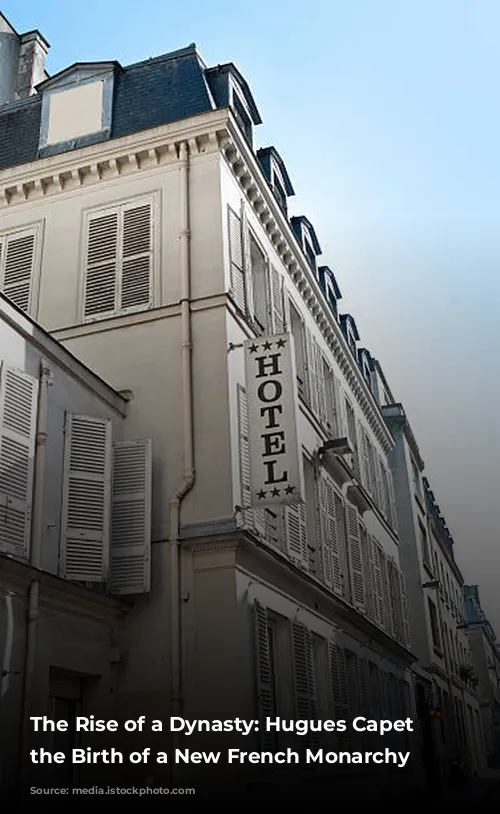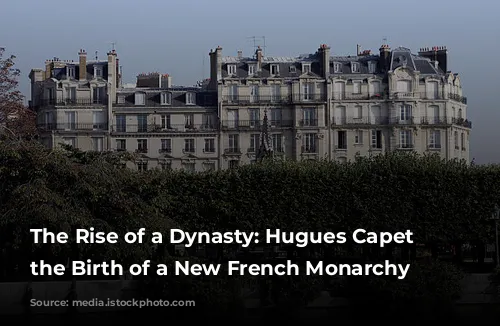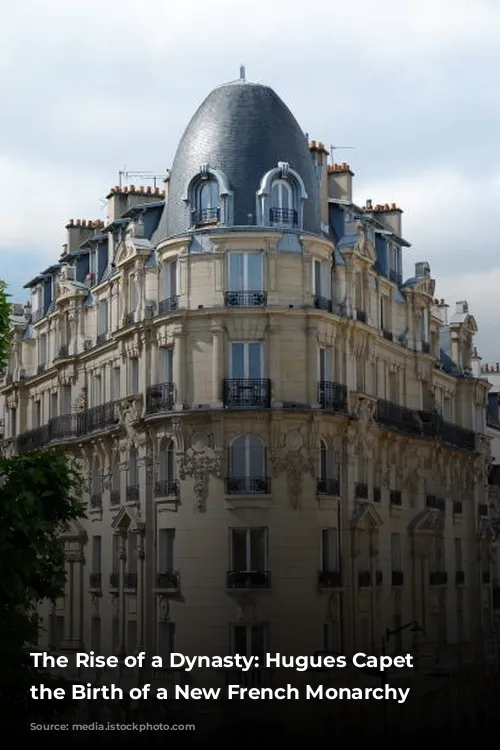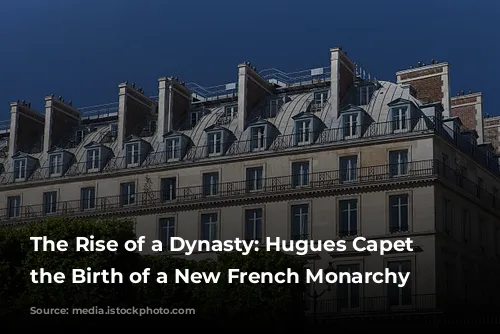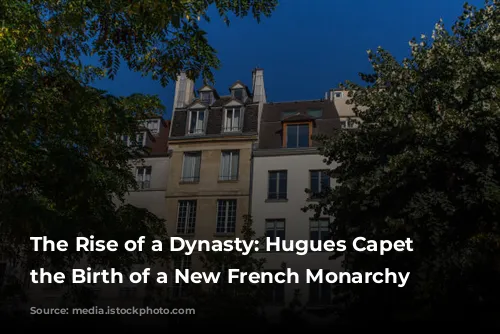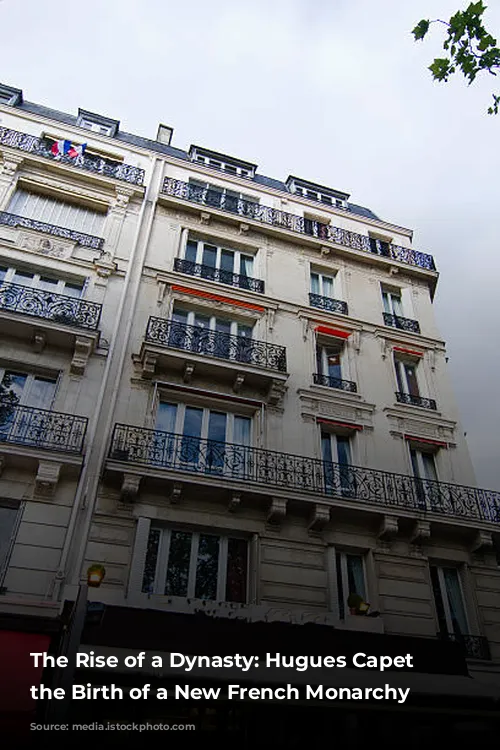Hugues Capet, the first king of the Capetian dynasty, ruled France for nearly 350 years. His reign marked a significant turning point in French history, establishing a new royal lineage that would shape the nation’s destiny for centuries to come. Hugues was born into a family of powerful French nobles, his lineage intertwined with both French and German royalty.
A Legacy Rooted in Power and Lineage
Hugues was born around 940, the son of Hugh the Great, Duke of the Franks, and Hedwige of Saxony. His mother, Hedwige, was the daughter of Henry the Fowler, King of Germany, a key figure in consolidating the power of the Holy Roman Empire. This connection linked Hugues to a powerful lineage, tracing back to the illustrious House of Saxony.
Hugues’s mother’s family tree boasted even more prominent names. His grandmother, Gerberga of Saxony, was the queen of France, having married King Louis IV. Gerberga’s lineage extended further back to the Carolingian dynasty through her father, Henry I, Duke of Saxony. This royal lineage also connected Hugues to Otto I, the first Holy Roman Emperor, and Bruno the Great, Archbishop of Cologne.
Hugues’s father’s side, the Robertians, were powerful landowners in the Île-de-France, a region that would become the heart of the Capetian kingdom. This lineage had already made its mark on French history, with Robert I, Hugues’s grandfather, having briefly reigned as King of the Franks.

A Dynasty Emerges From the Ruins of a Falling Empire
By the late 9th century, the descendants of Robert the Strong, the Robertians, had become key players in French politics. As the Carolingian dynasty weakened, powerful nobles like the Robertians began to assert that the monarchy was elected rather than hereditary. They twice chose members of their family – Odo I (888-898) and Robert I (922-923) – to rule France, instead of the Carolingians.
Hugues’s father, Robert I, was succeeded by his son-in-law, Rudolph of Burgundy. Upon Rudolph’s death in 936, Hugh the Great faced a monumental decision: Should he claim the throne for himself?
To secure the throne, Hugues would need to win an election, a contest he would face against formidable opponents like Herbert II, Count of Vermandois, the father of Hugh, Archbishop of Reims, and alliances with Henry the Fowler, King of Germany, and Hugh Black, Duke of Burgundy.
Instead of risking a potentially damaging election, Hugues orchestrated the return of Louis d’Outremer, the son of Charles III of France, who had been exiled at the court of Athelstan of England. Hugues secured Louis’s coronation as Louis IV, making him the most powerful figure in France.
This move proved to be a brilliant strategy. Louis IV, grateful for Hugues’s support, granted him the title of Dux Francorum (Duke of the Franks) and proclaimed him “the second after us in all our kingdoms”. This solidified Hugues’s position as the second most powerful man in France.
Hugues’s power grew even further when Herbert II of Vermandois died in 943, dividing his powerful territory among his four sons. This weakened the Vermandois family, further bolstering Hugues’s influence.
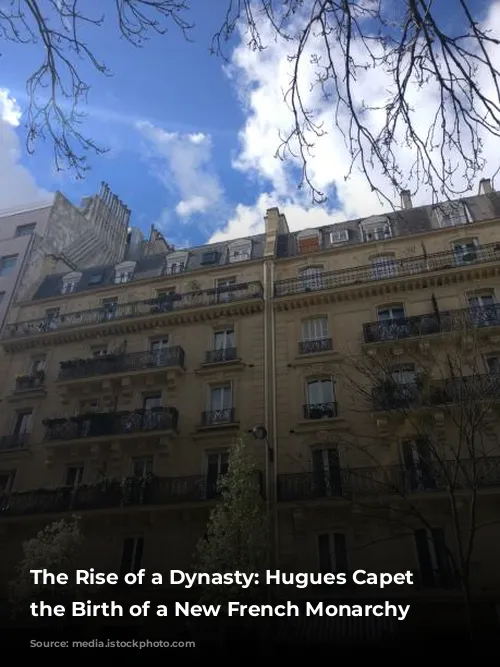
Laying the Foundations of a New French Kingdom
Hugues the Great controlled a vast swathe of central France, extending from Orléans and Senlis to Auxerre and Sens. In contrast, the king was confined to the northeast region around Paris, including Compiègne, Laon, and Soissons.
The kingdom Hugues inherited was far from the modern-day France. His predecessors did not refer to themselves as Kings of France, a title that would not be adopted until the reign of his descendant, Philip II. They ruled as rex Francorum (Kings of the Franks), a title that would continue to be used until 1190.
The territory they ruled over encompassed only a fraction of the former Carolingian Empire. The eastern Frankish territories, later known as the Holy Roman Empire, were controlled by the Otto family, represented by Hugues’s cousins, Emperor Otto II and later Emperor Otto III. The lands south of the Loire River were largely detached from the West Francia kingdom following the dethronement of Charles III in 922.
The Duchy of Normandy and the Duchy of Burgundy were largely independent, as was the Duchy of Brittany. However, in 956, Burgundy came under the control of Hugues’s brothers, Otto and Henry.
